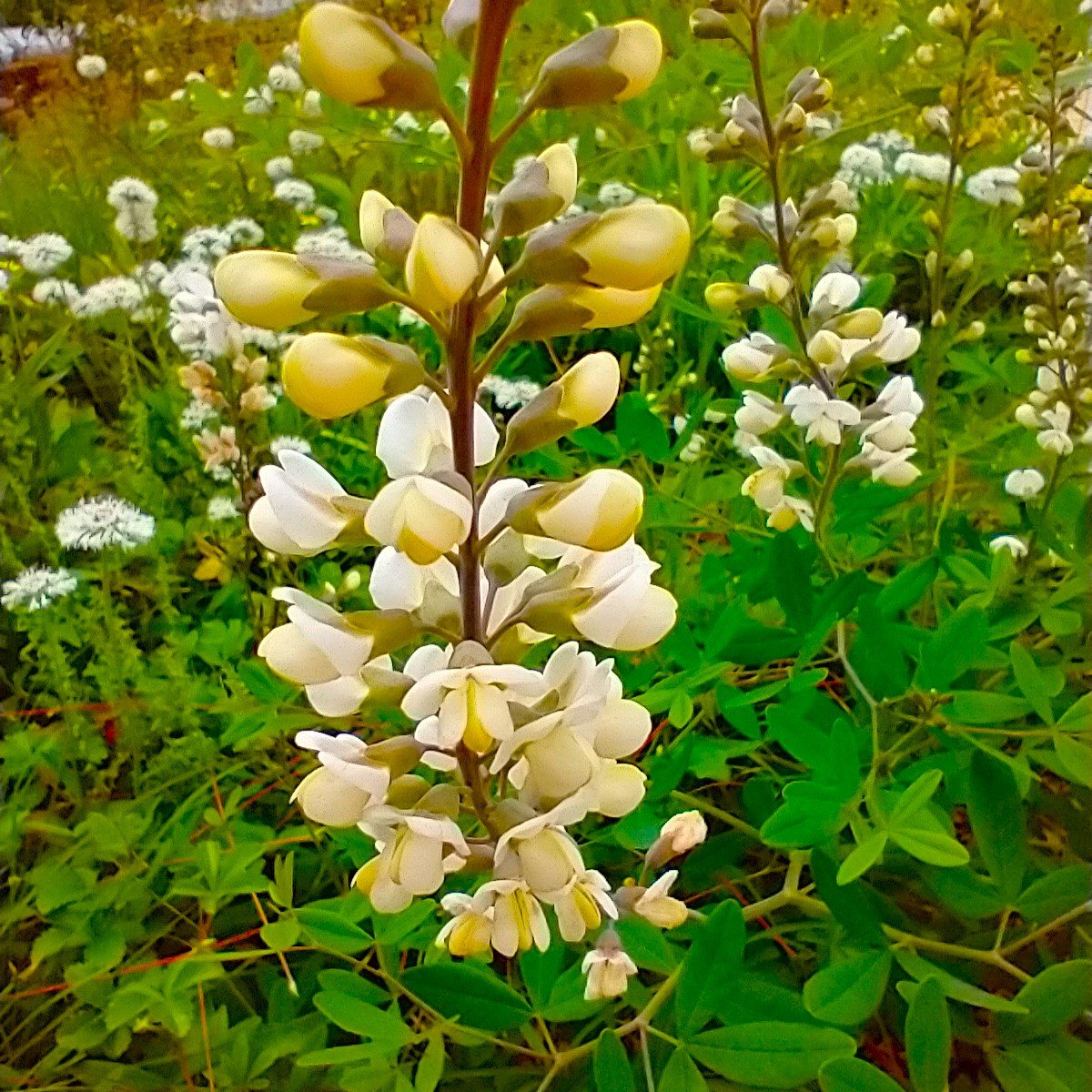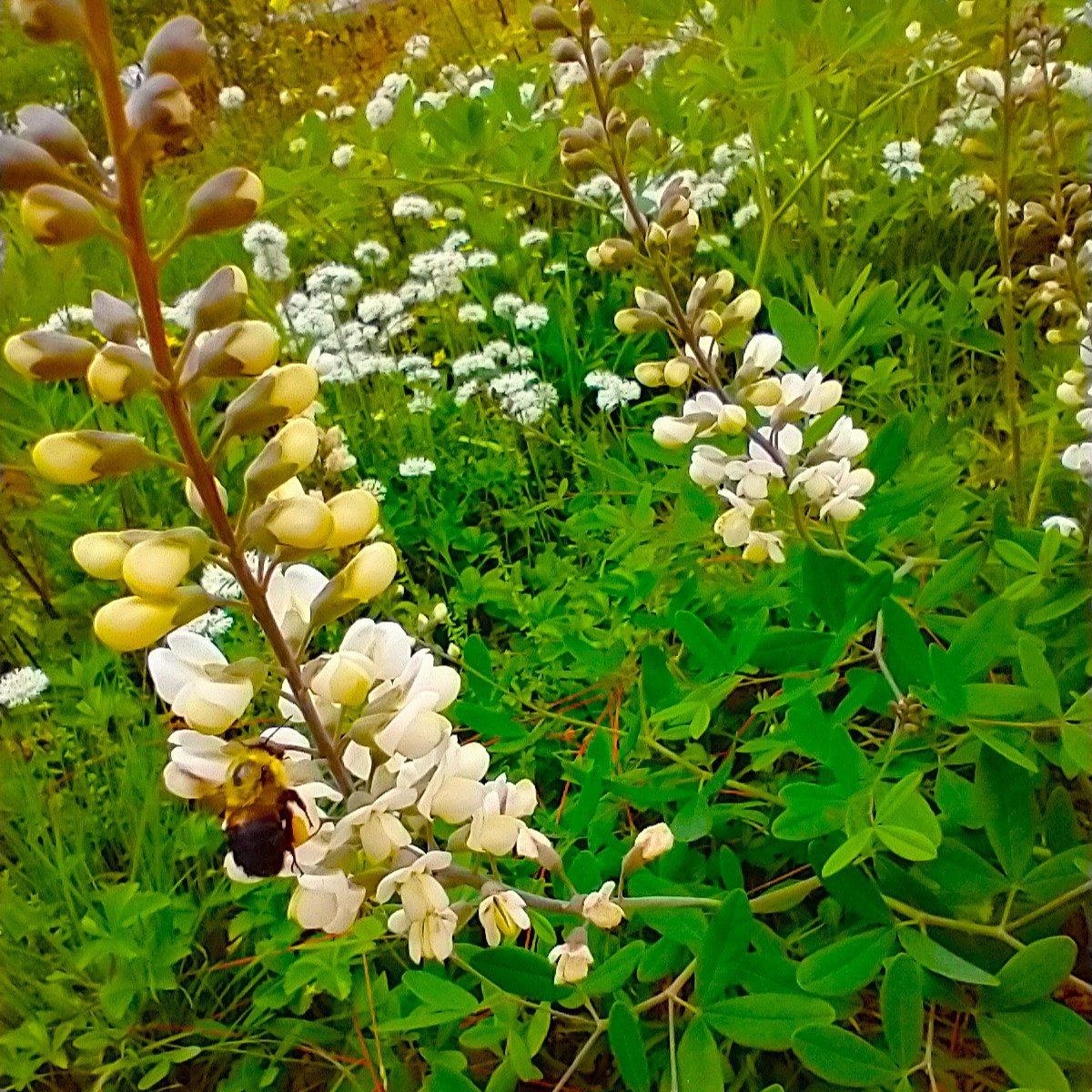Polemonium reptans (Creeping Jacob's Ladder)
Polemonium reptans is a spring-flowering perennial found in shady woodlands. It is a food source for early pollinators with attractive clusters of blue flowers and arching foliage that can form lovely patches in the right space.
For those with home gardens and patios in wooded areas, finding perennials that will bloom in shade and attract pollinators can be a challenge. Consider Polemonium reptans. This low-growing native plant can form colonies over time, spreading by rhizomes and reseeding, but slow enough to easily manage in any garden. Although it can grow in full sun, it does not tolerate drought, and performs best in partial to dappled shade with moist, well-drained soils. The “ladder” like leaves can resemble a groundcover over time, and clusters of light blue flowers emerge for several weeks in spring from April to May. The leaves may retreat in hot summer weather like true spring ephemerals, but will return, especially if some light leaf mulch cover is provided to protect the roots. Consider pairing with taller, later blooming shade wildflowers where Polemonium reptans can provide a natural “living mulch” cover after blooming.
Polemonium reptans is beneficial to a number of insect pollinators, providing a vital food source in spring when emerging insects are emaciated and vulnerable. While generalists like bumblebees can find food from the prolific flowering trees in the canopy above, late frosts and unexpected freezes can kill spring flowers, while hardy perennials closer to the ground can sometimes persist even when tree flowers cannot. This makes low-growing spring flowers like Polemonium reptans an important alternative for pollinators when spring weather grows increasingly unpredictable. Compared to other spring ephemerals, Polemonium reptans provides large, easy to access flowers with both nectar and pollen, offering resources to a wide range of pollinator species.
Pollinators: bumblebees, digger bees, halictid bees, mason bees, miner bees, small carpenter bees, honey bees, butterflies, moths, bee flies, syrphid flies, beetles
Host Plant for Butterflies/Moths: Papaipema unimoda
Dependent Species: Andrena polemonii (DE, WV) - oligolectic bee species, Coleophora polemoniella
Wildlife Value: shelter, winter cover
Deer Resistance: Moderate
Native Region: Appalachian Mountains
Seed Origin: USA
USDA Zones: 3-8
States found in our region: AL, DE, GA, KY, MD, NC, PA, TN, VA, WV
Other states found: AR, IL, IN, IA, KS, LA, MI, MN, MS, MO, NE, NJ, NY, OH, OK, RI, SD, WI















